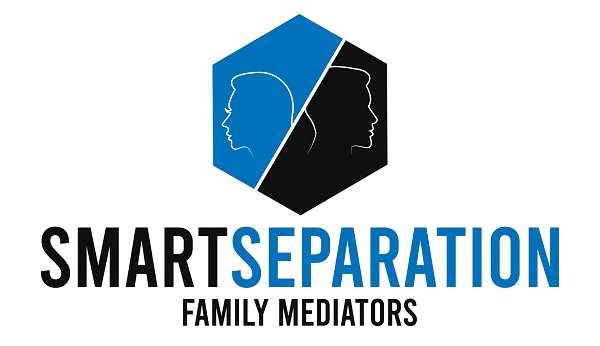Qualifications Required Becoming a Divorce Mediator
In Ontario, including Toronto, there is no mandatory government licensing process for divorce mediators. This means that technically, anyone can call themselves a mediator. However, families seeking reliable guidance are strongly encouraged to work with professionals who meet recognized standards of training and accreditation.
Accreditation is another important factor to consider. In Ontario, the Ontario Association for Family Mediation (OAFM) and the ADR Institute of Ontario (ADRIO) are two leading organizations that set high standards for professional mediators. Accreditation from these bodies assures clients that the mediator has completed extensive education, practical experience, and ongoing professional development. For families in Toronto, choosing an accredited mediator provides peace of mind that their case will be handled with skill and neutrality.
The professional backgrounds of mediators vary widely. Many accredited mediators are lawyers with deep knowledge of Ontario’s Family Law Act. Others come from fields such as social work, psychology, or counselling, bringing expertise in communication and emotional dynamics. Some mediators also have financial or business backgrounds, which can be invaluable when property division and complex assets are involved. Regardless of their original profession, those who pursue mediator training share the goal of guiding couples through separation in a fair and constructive way.
Professional Backgrounds of Toronto Divorce Mediators
Toronto divorce mediators come from a range of professional backgrounds, each bringing unique strengths to the mediation process. This diversity allows separating couples to choose a mediator—or even a team—that best fits their needs and circumstances.
Lawyers are among the most common professionals offering Toronto divorce mediation. Their knowledge of Ontario’s Family Law Act helps ensure that mediated agreements are legally sound and enforceable. They also provide guidance on the implications of property division, child support, and spousal support, helping couples avoid costly mistakes.
Financial specialists, including accountants and pension experts, often serve as mediators or advisors in mediation. They provide clarity on asset division, support calculations, tax considerations, and retirement planning. For couples with significant financial complexity—such as business ownership, real estate holdings, or pensions—this expertise ensures fair and sustainable agreements.
In many cases, multidisciplinary teams are available in Toronto.
The Role of a Divorce Mediator in the Separation Process
A divorce mediator plays a central role in guiding separating couples through the difficult conversations that accompany the end of a marriage. In Toronto, mediators are trained to create a safe and respectful environment where both spouses can voice their concerns and work toward mutually acceptable solutions.
One of the mediator’s primary responsibilities is facilitating open discussions. Topics often include parenting plans, child support, spousal support, and the division of property. By encouraging dialogue rather than confrontation, mediators help couples explore practical solutions that meet the needs of both parties and their children.
Equally important is the mediator’s ability to keep conversations neutral and focused on resolution. Unlike lawyers representing individual clients, mediators remain impartial, ensuring that neither spouse dominates the discussion.
While mediators do not provide legal advice, they can explain the legal implications of certain choices in a general way. For example, they may outline how Ontario’s Family Law Act applies to child support or property division.
In Toronto, couples typically take the MOU to their respective lawyers for review and formalization, ensuring the agreement is enforceable in court if needed.
Choosing the Right Mediator in Toronto
Selecting the right mediator is an important step in ensuring a successful separation process. In a city as diverse as Toronto, couples should carefully evaluate the qualifications and approach of any mediator they are considering.
Accreditation from respected bodies such as the Ontario Association for Family Mediation (OAFM) or the ADR Institute of Ontario (ADRIO) signals that the mediator has completed extensive training and adheres to professional standards. Experience also matters: mediators who have worked with a wide range of family situations are often better equipped to handle complex issues. Fees can vary, so it is wise to discuss costs up front and ensure that the services fit within your budget.
In Toronto, cultural competence is another essential consideration. With the city’s diverse population, a mediator who understands and respects cultural values, traditions, and communication styles can make the process smoother and more effective for both spouses.
Couples should also know how to verify a mediator’s professional membership and training. Most accredited mediators are listed on the websites of their accrediting bodies, and it is reasonable to request proof of training or certification before beginning the process.
When Mediation May Not Be Appropriate
While divorce mediation offers many benefits for separating couples in Toronto, it is not suitable in every situation. Mediation may not be appropriate in situations involving domestic violence or a significant power imbalance. If one spouse feels unsafe or unable to express themselves freely, the process cannot provide a fair or productive outcome. In such cases, the courts or other protective legal measures may be better suited to safeguard the vulnerable party.
Another limitation arises when one party refuses to provide full financial disclosure. Mediation relies on honesty and transparency. Ontario courts require financial disclosure in family law matters, and couples cannot bypass this obligation through mediation.
Finally, mediation is not a substitute for legal intervention in cases where binding authority is required. For example, if spouses cannot agree on urgent parenting issues, or if complex property and business disputes need a definitive ruling, litigation or arbitration may be necessary. In Toronto, mediators often advise parties to seek independent legal advice or court assistance when mediation is unlikely to resolve such conflicts effectively.
As an experienced family and divorce mediator in Toronto, I often write blogs to provide insights, tips, and resources on family mediation and divorce in Ontario. Follow my blog to stay informed and empowered during challenging times.



